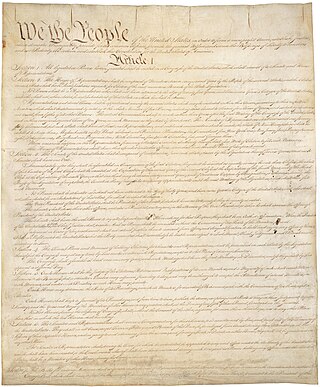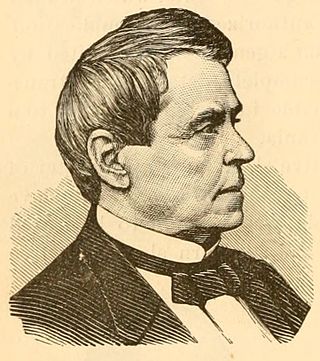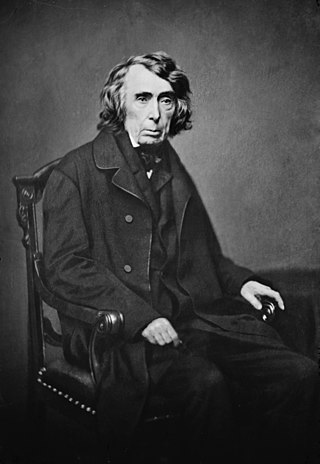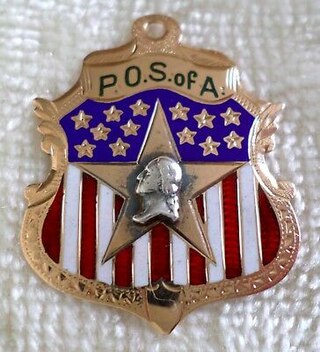
The Constitution of the United States is the supreme law of the United States. It superseded the Articles of Confederation, the nation's first constitution, on March 4, 1789. Originally including seven articles, the Constitution delineates the frame of the federal government. The Constitution's first three articles embody the doctrine of the separation of powers, in which the federal government is divided into three branches: the legislative, consisting of the bicameral Congress ; the executive, consisting of the president and subordinate officers ; and the judicial, consisting of the Supreme Court and other federal courts. Article IV, Article V, and Article VI embody concepts of federalism, describing the rights and responsibilities of state governments, the states in relationship to the federal government, and the shared process of constitutional amendment. Article VII establishes the procedure subsequently used by the 13 states to ratify it. The Constitution of the United States is the oldest and longest-standing written and codified national constitution in force in the world.

The Federalist Party was a conservative and nationalist American political party and the first political party in the United States. It dominated the national government under Alexander Hamilton from 1789 to 1801. The party was defeated by the Democratic-Republican Party in 1800, and it became a minority party while keeping its stronghold in New England. It made a brief resurgence by opposing the War of 1812, then collapsed with its last presidential candidate in 1816. Remnants lasted for a few years afterwards.

The President, Directors and Company of the Bank of the United States, commonly known as the First Bank of the United States, was a national bank, chartered for a term of twenty years, by the United States Congress on February 25, 1791. It followed the Bank of North America, the nation's first de facto national bank. However, neither served the functions of a modern central bank: They did not set monetary policy, regulate private banks, hold their excess reserves, or act as a lender of last resort. They were national insofar as they were allowed to have branches in multiple states and lend money to the US government. Other banks in the US were each chartered by, and only allowed to have branches in, a single state.

Robert Morris Jr. was an English-born American merchant, investor and politician who was one of the Founding Fathers of the United States. He served as a member of the Pennsylvania legislature, the Second Continental Congress, and the United States Senate, and he was a signer of the Declaration of Independence, the Articles of Confederation, and the United States Constitution. From 1781 to 1784, he served as the Superintendent of Finance of the United States, becoming known as the "Financier of the Revolution." Along with Alexander Hamilton and Albert Gallatin, he is widely regarded as one of the founders of the financial system of the United States.

James Pollock was the 13th governor of Pennsylvania from 1855 to 1858.

Robert Nelson Cornelius Nix Jr. served as the chief justice of the Pennsylvania Supreme Court from 1984 to 1996. Nix was the first African-American Chief Justice of any state's highest court, and the first African American to be elected to statewide office in Pennsylvania. He served as a justice of the Supreme Court of Pennsylvania for 24 years, 12 of which were as chief justice, and was a prominent figure in Pennsylvania law and public service for more than three decades.

Washington's Farewell Address is a letter written by President George Washington as a valedictory to "friends and fellow-citizens" after 20 years of public service to the United States. He wrote it near the end of the second term of his presidency before retiring to his home at Mount Vernon in Virginia.
The enumerated powers of the United States Congress are the powers granted to the federal government of the United States by the United States Constitution. Most of these powers are listed in Article I, Section 8.
The Taxing and Spending Clause, Article I, Section 8, Clause 1 of the United States Constitution, grants the federal government of the United States its power of taxation. While authorizing Congress to levy taxes, this clause permits the levying of taxes for two purposes only: to pay the debts of the United States, and to provide for the common defense and general welfare of the United States. Taken together, these purposes have traditionally been held to imply and to constitute the federal government's taxing and spending power.
The Legal Tender Cases were two 1871 United States Supreme Court cases that affirmed the constitutionality of paper money. The two cases were Knox v. Lee and Parker v. Davis.

The 1872 Republican National Convention was held in Philadelphia, Pennsylvania, June 5–6, 1872. President Ulysses S. Grant was unanimously nominated for reelection by the convention's 752 delegates. Massachusetts Senator Henry Wilson replaced sitting Vice President Schuyler Colfax as the Republican vice presidential nominee.
David Max Baer was an American judge who served as a justice of the Pennsylvania Supreme Court from the time of his election in 2003 until his death in 2022. He was elevated to the court's most senior position, chief justice, in 2021.

The second inauguration of Andrew Jackson as president of the United States took place in the House Chamber of the U.S. Capitol on Monday, March 4, 1833. The inauguration marked the commencement of the second four-year term of Andrew Jackson as president and the only four-year term of Martin Van Buren as vice president.

The first inauguration of Ulysses S. Grant as the 18th president of the United States was held on March 4, 1869, at the East Portico of the United States Capitol in Washington, D.C. This was the 21st presidential inauguration and marked the commencement of the first four-year term of Ulysses S. Grant as president and the only term of Schuyler Colfax as vice president. Chief Justice Salmon P. Chase administered the presidential oath of office. Outgoing president Andrew Johnson did not attend the inaugural ceremonies, as he and Grant refused to sit with each other in the carriage going to them. Johnson also refused to go in a separate carriage. Instead, he was in the White House signing last-minute legislation. This was the fourth time an outgoing president boycotted his elected successor's inauguration, an event that would not occur again until Donald Trump boycotted Joe Biden's inauguration in 2021 after failing to overturn the results.

Roger Brooke Taney was an American lawyer and politician who served as the fifth chief justice of the United States, holding that office from 1836 until his death in 1864. Taney infamously delivered the majority opinion in Dred Scott v. Sandford (1857), ruling that African Americans could not be considered U.S. citizens and that Congress could not prohibit slavery in the U.S. territories. Prior to joining the U.S. Supreme Court, Taney served as the U.S. attorney general and U.S. secretary of the treasury under President Andrew Jackson. He was the first Catholic to serve on the Supreme Court.

James Wilson was a Scottish-born American Founding Father, legal scholar, jurist, and statesman who served as an associate justice of the United States Supreme Court from 1789 to 1798. Wilson was elected twice to the Continental Congress, was a signatory of the Declaration of Independence, and was a major participant in drafting the U.S. Constitution becoming one of only six people to sign both documents. A leading legal theorist, he was one of the first four Associate Justices appointed to the Supreme Court by George Washington. In his capacity as the first professor of law at the College of Philadelphia, he taught the first course on the new Constitution to President Washington and his Cabinet in 1789 and 1790.

The 1864 National Union National Convention was the United States presidential nominating convention of the National Union Party, which was a name adopted by the main faction of the Republican Party in a coalition with many, if not most, War Democrats after some Republicans and War Democrats nominated John C. Frémont over Lincoln. During the Convention, the party officially called for the end of the ongoing Civil War, the eradication of slavery and the adoption of the Emancipation Proclamation.
Ware v. Hylton, 3 U.S. 199 (1796), also known as the British Debt Case, was a decision of the United States Supreme Court holding that treaties take precedence over state law under the U.S. Constitution. It was the first Supreme Court case concerned with treaties, the first to rule that treaty provisions were as binding as domestic U.S. law, and the first to affirm the supremacy of federal law over state law. Ware is also notable for articulating the legal doctrine that would later be known as judicial review, whereby federal courts have the authority to settle conflicts of law.

The Patriotic Order Sons of America is an American patriotic fraternal organization that traces its origins to the anti-alien riots of the 1840s. Founded in 1847 in Philadelphia, the P.O.S. of A. once had "camps" (chapters) in well over 20 states. At its peak, there were more than 800 Camps in Pennsylvania alone. Today, the society maintains a presence only in Pennsylvania, where it has 14 camps. The national headquarters are in Valley Forge, Pennsylvania.













